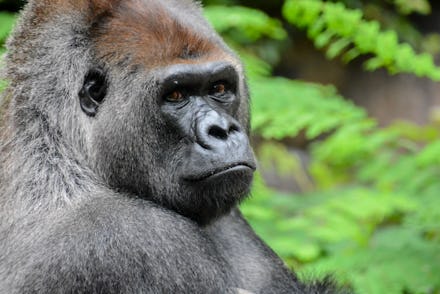A terrifying new study predicts mammals are about to start going extinct at an unprecedented rate

Throughout its 4.5 billion-year history, the Earth has gone through five mass extinctions. These events happen over many thousands of years as groups of species tend to die out in multiple waves. As our planet undergoes its sixth mass extinction event, a new study has found that our current rate of mammal extinctions is going exceptionally fast.
A team of European researchers conducted a study to calculate the current rate at which species are dying off and predict what will happen with the rate in the future. In the report, released last week in the journal Science Advances, the team warns we're going through our first wave of extinctions and will accelerate to a second by 2100. They also found that human impact is spurring these extinctions far more than a naturally changing climate, which is likely the reason for the unusually quickening rate.
The team used statistical modeling to create simulations of situations that might come true based on calculations. Based on their math, it took about 126,000 years for 351 species to die off during the Late Ice Age. However, they predict it will take only 810 years for 351 more mammal species to go extinct during the current extinction event — a rate that's 1,700 times higher than the last extinction event. This is all thanks to mankind, a force that has more negative impacts on the environment than the naturally changing environments of the prehistoric past.
"Mammoths, for example, survived several ice ages before the last one and there is no climatic reason why they should not be alive in Siberia today" if not for humans, noted co-author Daniele Silvestro in a press release.
The researchers' predictions go further: By the end of the century, up to 558 species could die out at a rate that's nearly 30,000 times faster than the Late Ice Age event.
"We can save hundreds of species from extinction with more targeted and efficient conservation strategies," lead author Tobias Andermann said in a press release.
"But in order to achieve this, we need to increase our collective awareness about the looming escalation of the biodiversity crisis and take action to combat this global emergency. Time is pressing. With every lost species, we irreversibly lose a unique portion of Earth’s natural history."
Australia and the Caribbean in particular appear to be entering their second wave of extinctions, claimed the authors, judging by the rate of species dying out over the past decades.
"[We] can already see these future scenarios being manifested in parts of the world," they wrote.
The team believes the grim evidence is proof that their predictions, despite how extreme they might seem, are grounded in reality.